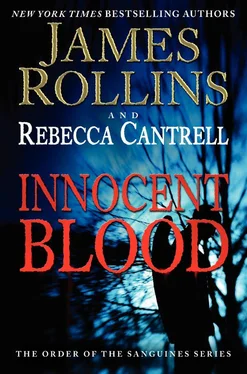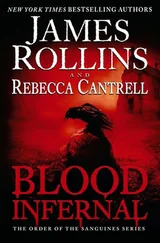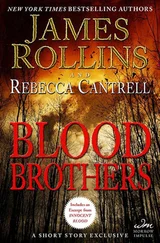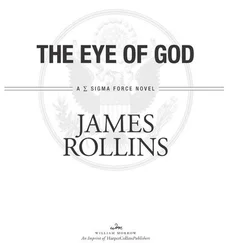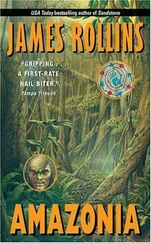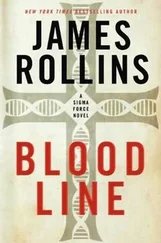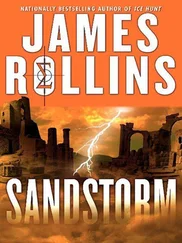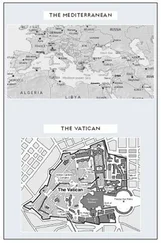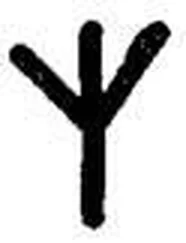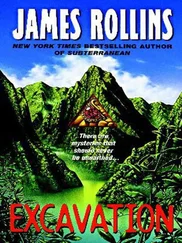But she didn’t.
Because nothing was the same.
As she straightened and prepared this morning’s lecture notes, her students arrived in ones and twos, a few climbing down the stairs to the seats in front, but most hanging back and folding down the seats in the uppermost rows.
“Professor Granger?”
Erin glanced to her left and discovered a young man with five silver hoops along one eyebrow approaching her. The student wore a determined expression on his face as he stepped in front of her. He carried a camera with a long lens over one shoulder.
“Yes?” She didn’t bother to mask the irritation in her voice.
He placed a folded slip of paper atop the wooden lectern and slid it toward her.
Behind him, the other students in the room looked on, nonchalant, but they were unconvincing actors. She could tell they watched her, wondering what she would do. She didn’t need to open that slip of paper to know that it contained the young man’s phone number.
“I’m from the Stanford Daily .” He played with a hoop in his eyebrow. “I was hoping for one quick interview for the school newspaper?”
She pushed the slip of paper back toward him. “No, thank you.”
She had refused all interview requests since returning from Rome. She wouldn’t break her silence now, especially as everything she was allowed to say was a lie.
To hide the truth of the tragic events that had left her two students dead, a story had been put out that she had been trapped three days in the Israeli desert, entombed amid the rubble following an earthquake at Masada. According to that false account, she was discovered alive, along with an army sergeant named Jordan Stone and her sole surviving graduate student, Nate Highsmith.
She understood the necessity of a cover story to explain the time she had spent working for the Vatican, a subterfuge that was further supported by an elite few in the government who also knew the truth. The public wasn’t ready for stories of monsters in the night, of the dark underpinnings that supported the world at large.
Still, necessity or not, she had no intention of elaborating on those lies.
The student with the line of eyebrow rings persisted. “I’d let you review the story before I post it. If you don’t like every single bit, we can work with it until you do.”
“I respect your persistence and diligence, but it does not change my answer.” She gestured to the half-full auditorium. “Please, take your seat.”
He hesitated and seemed about to speak again.
She pulled herself up to her full height and fixed him with her sternest glare. She stood only five foot eight, and with her blond hair tied back in a casual ponytail, she didn’t strike as the most intimidating figure.
Still, it was all about the attitude.
Whatever he saw in her eyes drove him back to the gathering students, where he sank quickly into his seat, keeping his face down.
With the matter settled, she tapped her sheaf of notes into a neat pile and drew the class to order. “Thank you all for coming to the final session of History 104: Stripping the Divine from Biblical History. Today we will discuss common misconceptions about a religious holiday that is almost upon us, namely Christmas .”
The bongs of laptops powering up replaced the once familiar sound of rustling paper as students prepared to take notes.
“What do we celebrate on December twenty-fifth?” She let her gaze play across the students — some pierced, a few tattooed, and several who looked hungover. “December twenty-fifth? Anyone? This one’s a gimme.”
A girl wearing a sweatshirt with an embroidered angel on the front raised her hand. “The birth of Christ?”
“That’s right. But when was Christ actually born ?”
No one offered an answer.
She smiled, warming past her fears as she settled into her role as teacher. “That’s smart of you all to avoid that trap.” That earned a few chuckles. “The date of Christ’s birth is actually a matter of some dispute. Clement of Alexandria said…”
She continued her lecture. A year ago, she would have said that no one alive today knew the actual date of Christ’s birth. She couldn’t say that anymore, because as part of her adventures in Israel, Russia, and Rome, she had met someone who did know, someone who was alive when Christ was born. In that moment back then, she had realized how much of accepted history was wrong —either masked by ignorance or obscured by purposeful deceptions to hide darker truths.
As an archaeologist, one who sought the history hidden under sand and rock, such a revelation had left her unsettled, unmoored. After returning to the comfortable world of academia, she discovered that she could no longer give the simplest lecture without careful thought. Telling her students the truth, if not the whole truth, had become nearly impossible. Every lecture felt like a lie.
How can I continue walking that line, lying to those I’m supposed to teach the truth?
Still, what choice did she have? After having that door briefly opened, revealing the hidden nature of the world, it had been shut just as soundly.
Not shut. Slammed in my face.
Cut off from those truths hidden behind that door, she was left on the outside, left to wonder what was real and what was false.
Finally, the lecture came to an end. She hurriedly wiped clean the whiteboard, as if trying to erase the falsehoods and half-truths found there. At least, it was over. She congratulated herself on making it through the final lecture of the year. All that was left now was to grade her last papers — then she would be free to face the challenge of Christmas break.
Across that stretch of open days, she pictured the blue eyes and hard planes of a rugged face, the full lips that smiled so easily, the smooth brow under a short fall of blond hair. It would be good to see Sergeant Jordan Stone again. It had been several weeks since she had last seen him in person — though they spoke often over the phone. She wasn’t sure where this relationship was going long term, but she wanted to be there to find out.
Of course, that meant picking out the perfect Christmas gift to express that sentiment. She smiled at that thought.
As she began to erase the last line from the whiteboard, ready to dismiss the students behind her, a cloud smothered the sun, cloaking the classroom in shadow. The eraser froze on the board. She felt momentarily dizzy, then found herself falling away into—
Absolute darkness.
Stone walls pressed her shoulders. She struggled to sit. Her head smashed against stone, and she fell back with a splash. Frantic hands searched a black world.
Stone all around — above, behind, on all sides. Not rough stone as if she were buried under a mountain. But smooth. Polished like glass.
Along the top of the box was a design worked in silver. It scorched her fingertips.
She gulped, and wine filled her mouth. Enough to drown her.
Wine?
A door at the rear of the hall slammed shut, yanking her back into the classroom. She stared at the eraser on the whiteboard, her fingers clutched tightly to it, her knuckles white.
How long have I stood here like this? In front of everyone.
She guessed no more than a few seconds. She’d had bouts like this before over the past few weeks, but never in front of anyone else. She’d dismissed them as posttraumatic stress and had hoped they would go away by themselves, but this last was the most vivid of them all.
She took a deep breath and turned to face her class. They seemed unconcerned, so she couldn’t have been out of it for too long. She must get this under control before something worse happened.
Читать дальше
